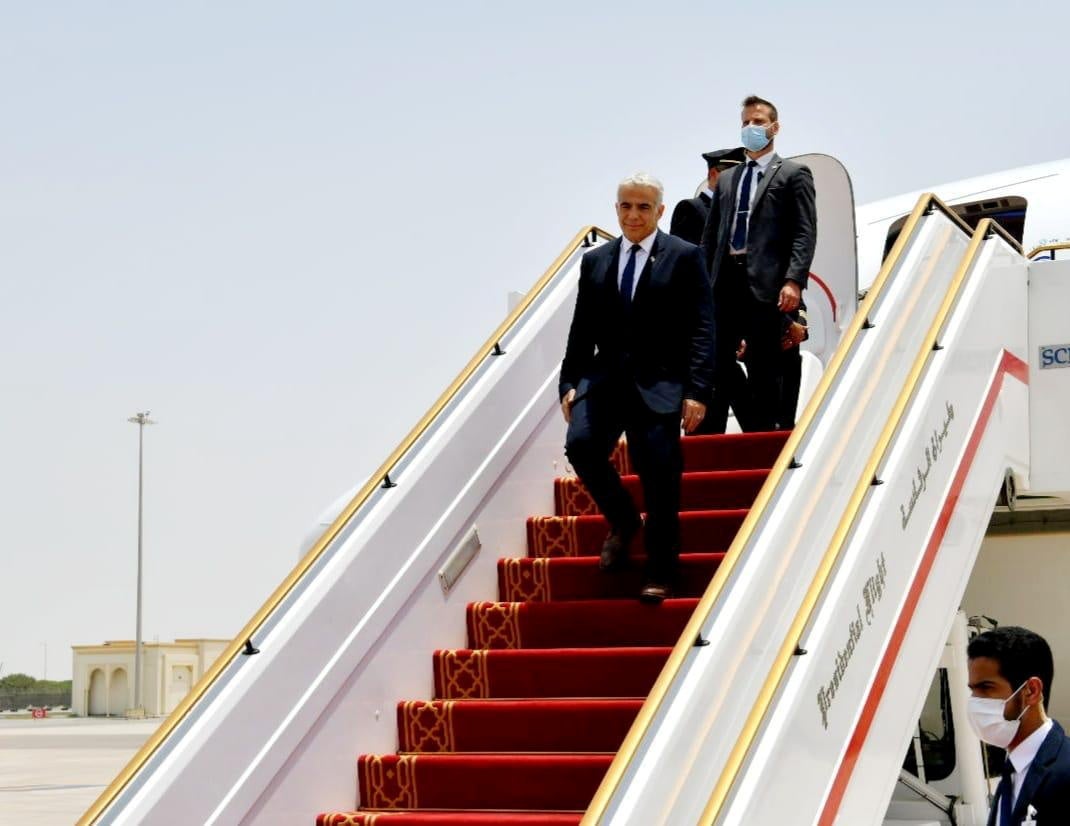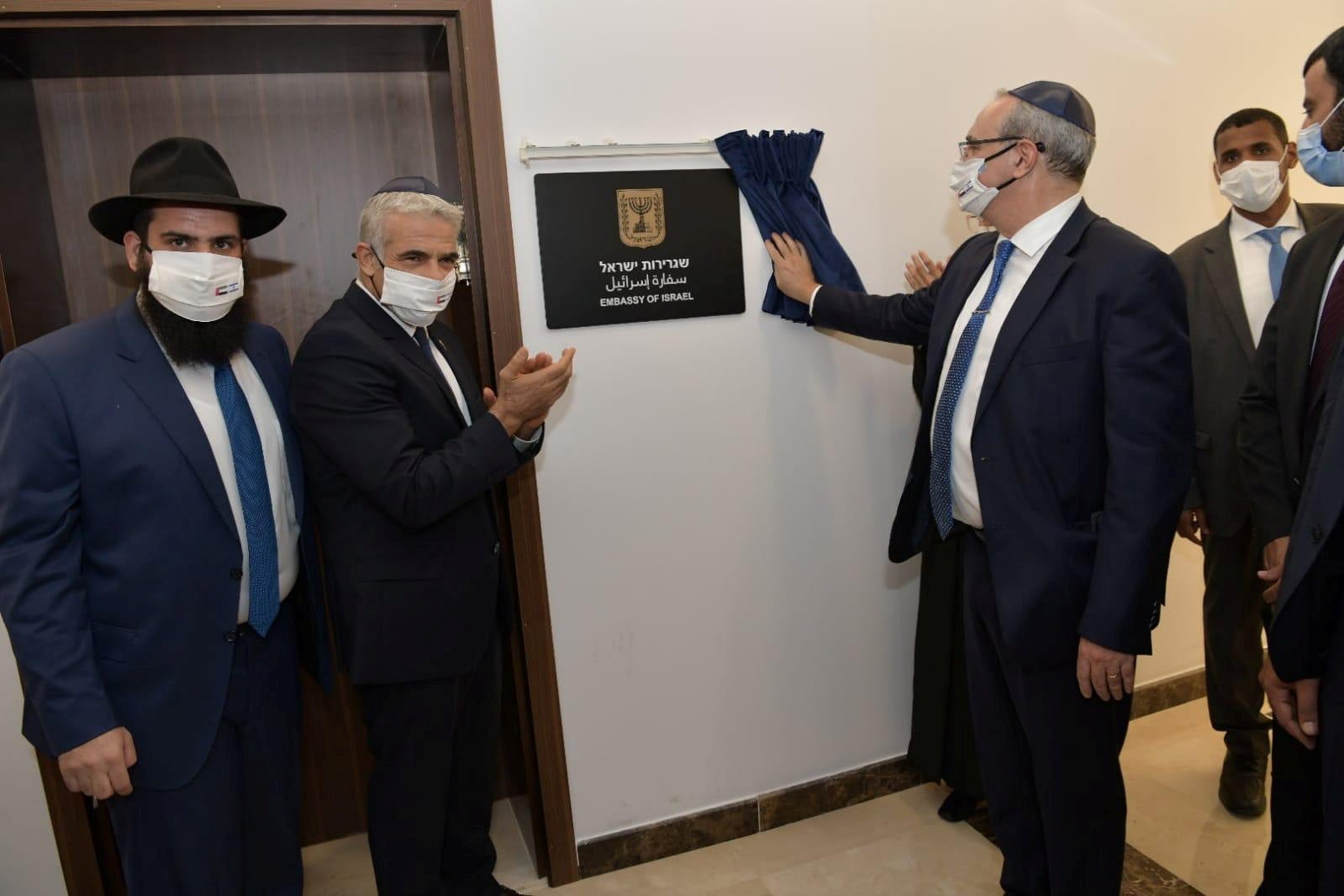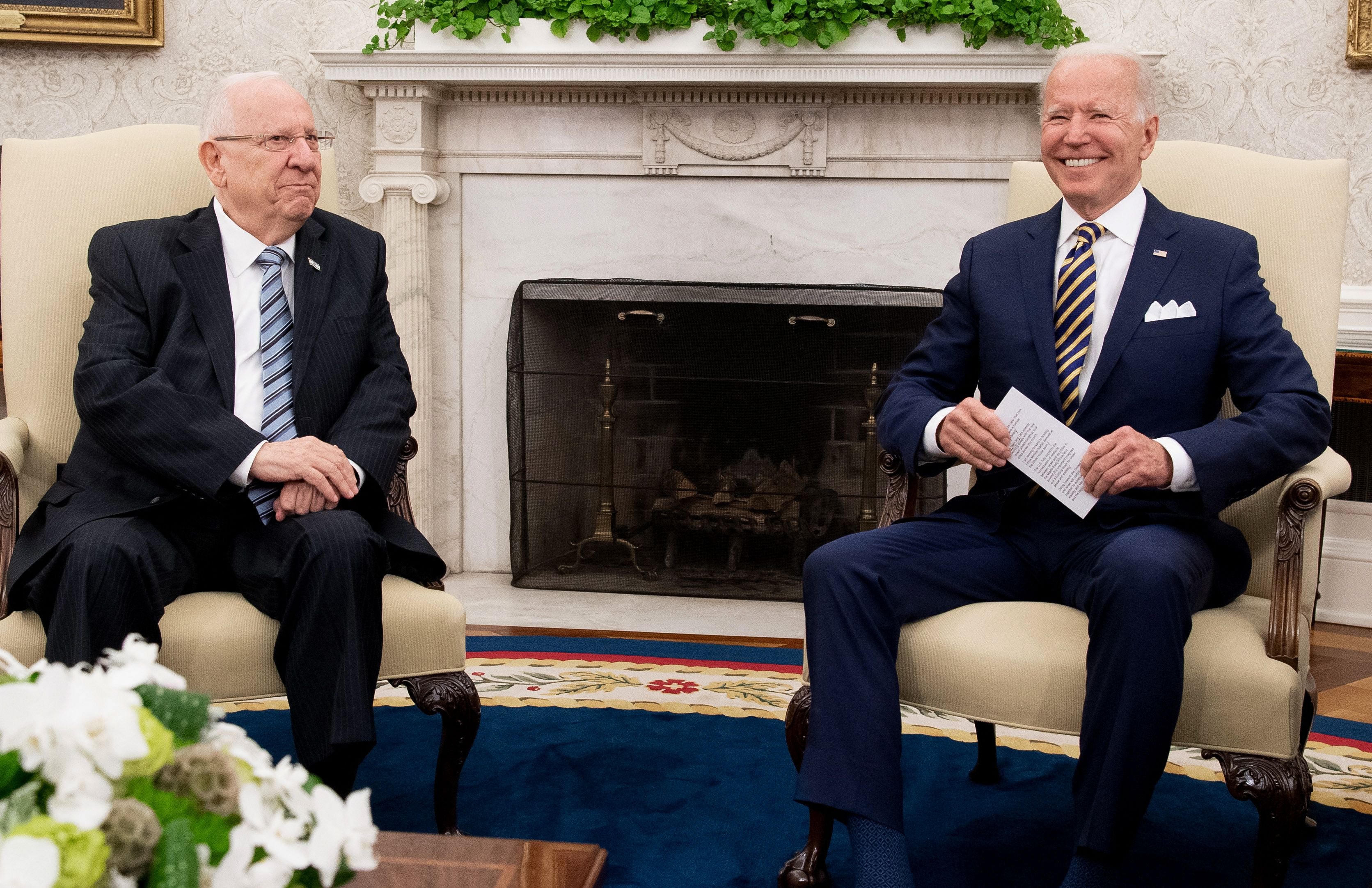Israel’s foreign minister makes ‘historic’ first state visit to UAE
During the visit, Yair Lapid is inaugurating Israel’s embassy in Abu Dhabi and opening a consulate in Dubai

Israel’s top diplomat and alternative prime minister arrived in the United Arab Emirates on Tuesday in the first-ever state visit as the two countries cement ties after a divisive deal in the autumn.
Yair Lapid, the country’s new foreign minister, is expected to inaugurate Israel’s embassy in Abu Dhabi and meet his Emirati counterpart, Abdullah bin Zayed al Nahyahn, becoming the most senior Israeli official to visit the tiny Gulf state.
In the two-day visit, the centrist politician and former opposition figure is also set to open a consulate in Dubai and visit the site of Expo 2020 Dubai, a world fair opening in October.
His plane flew through Saudi airspace. Riyadh has agreed to allow Israel-UAE flights to cross over despite not normalising ties with Israel.
Mr Lapid posted a picture on social media of himself during take-off, calling the visit “historic”.
Benjamin Netanyahu, Israel’s longest-serving prime minister, who presided over the deal, was forced to repeatedly postpone visits to the Emirati capital because of the pandemic and ultimately cancelled the last planned trip prior to the March elections over a diplomatic spat with Jordan.
Mr Netanyahu had claimed September’s normalisation deal with the UAE and similar agreements with Bahrain, Sudan and Morocco, as an extraordinary personal diplomatic victory on the campaign trail but it was not enough to secure another term in office.
According to Israeli media the former premier, who was ousted by Mr Lapid and his coalition partner Naftali Bennett this month, had barred members of his government from visiting the UAE until he had the chance to make the state visit.

In recent weeks, tensions have soared between the UAE and Israel when Israeli security forces stormed the Al-Aqsa Mosque in Jerusalem on the final days of the Muslim holy month of Ramadan.
In a rare public rebuke, the Emirati government slammed Israel’s actions. The site in occupied east Jerusalem is holy to both Jews and Muslims and the clashes ignited a short war between Palestinian militants in Gaza and the Israeli military which left hundreds dead.
The UAE and the other countries began normalising relations with Israel last year under the Abraham Accords brokered by then-US President Donald Trump as part of a strategic realignment of Middle East countries against Iran.
It marked the first time Gulf countries had formally recognised Israel, which they had not done in the past because of regional stances on the seven-decade Israeli-Palestinian conflict.
It has meant that Israel and the UAE have exchanged ambassadors and opened diplomatic and trading relations. There are now direct flights between the countries and have firmed up security, telecommunications, energy and healthcare ties. But the deal has not been without controversy.
They sparked furious backlash from the usually fractured Palestinian leadership who were unified in dismissing the agreements as a “stab in the back” as it came without an agreed Palestinian-Israeli peace agreement grounded on a two-state solution.
The administration of incoming US President Joe Biden immediately welcomed the accords but has also looked to repair US relations with the Palestinians after they soured under Mr Trump and has said they are no substitute for a proper long-lasting peace deal.
Mr Netanyahu, who is standing trial across three corruption cases, had hoped the accords might give him the pre-election boost in order to secure an unprecedented fifth term in office.
He was ultimately ousted by an unusual power-sharing deal between centrist Mr Lapid and the current prime minister Mr Bennett who is pro-settlements in the occupied West Bank and leads a far-right party.

The ruling coalition, which includes far right, leftist and – for the first time in Israel’s history – an Arab party, has just a one-seat razor-thin majority and is facing a bumpy journey ahead.
One of the main sticking points between the parties is the existence of controversial settler outposts in the occupied West Bank which are illegal under both international and Israeli law.
One of the first tests the government has had to grapple with are concerns about the Evyatar outpost, which, if approved, would spark tensions with the Biden administration and the Palestinians as well as parties within the government.
A deal is still being hammered out but Israeli media reports that the settlers agreed to vacate the homes although they will not be demolished.
Join our commenting forum
Join thought-provoking conversations, follow other Independent readers and see their replies
Comments
Bookmark popover
Removed from bookmarks